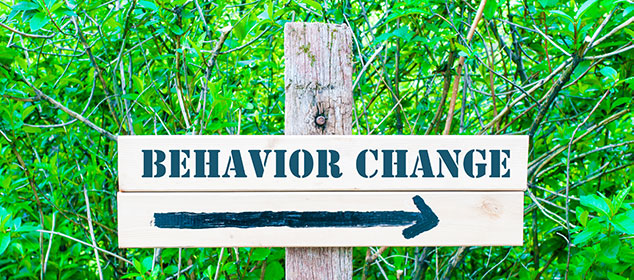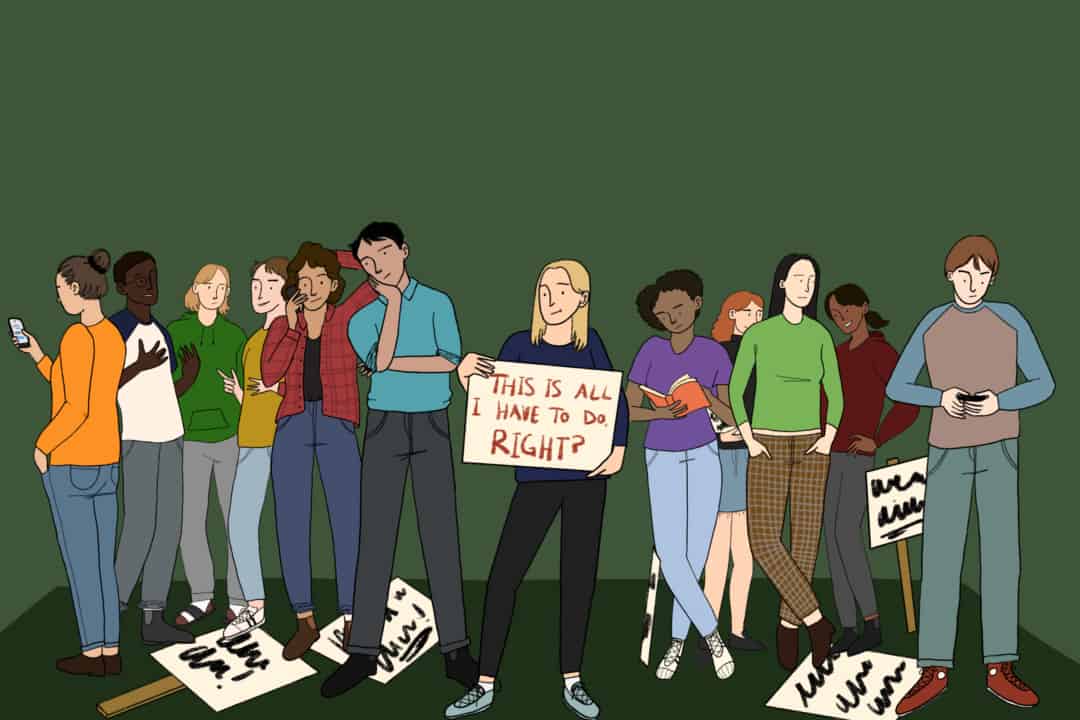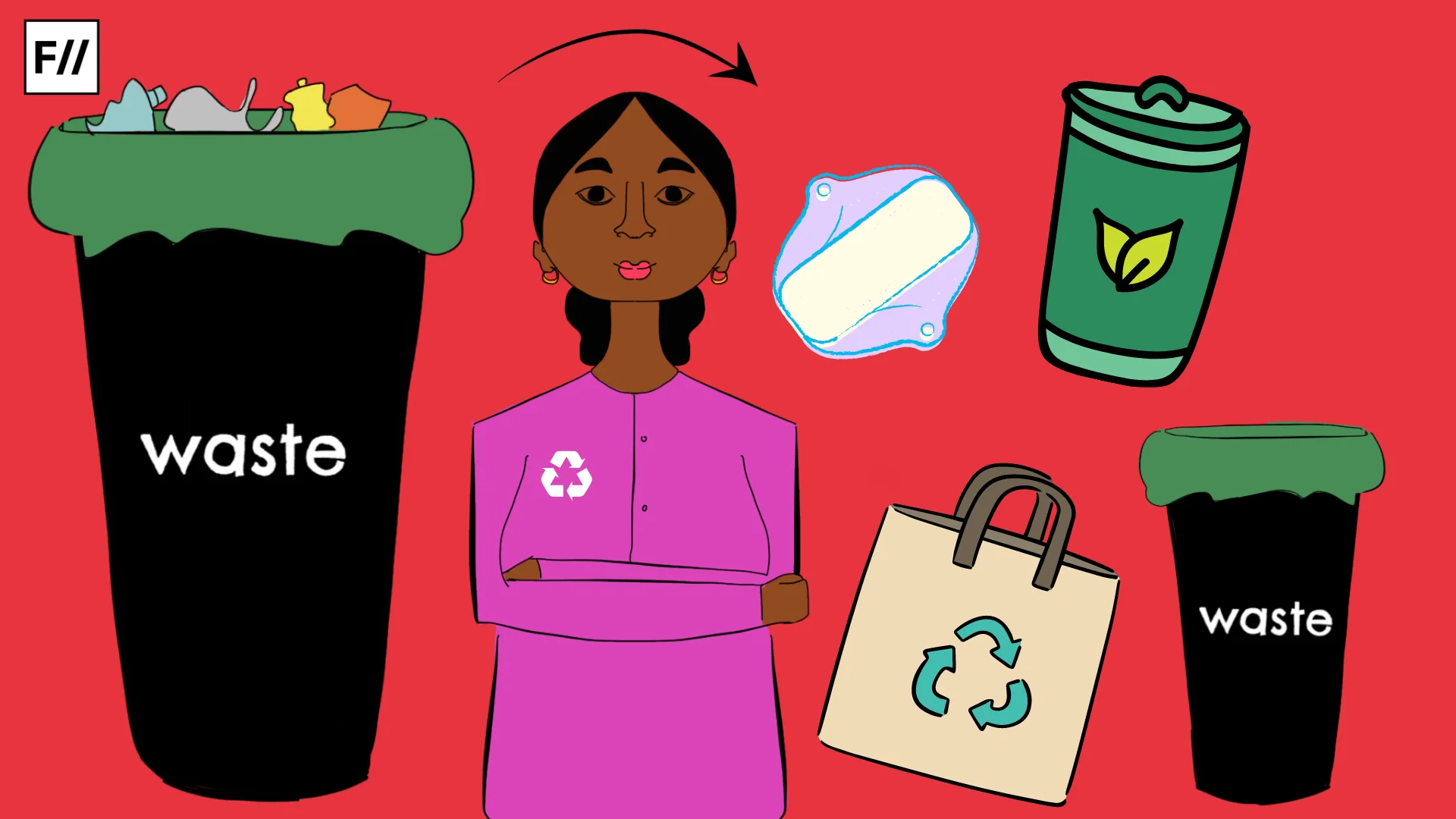It took decades for climate change to be acknowledged as the double-headed sword hanging over our heads. With the Covid pandemic at our doorsteps, the threats are manifold, challenges are diverse, and our climate fears are amplified.
But are we genuinely concerned about the environment? Are green living, sustainable consumption, and eco-friendly lifestyles mere fads? Despite being acutely aware of the looming threat to our very existence, what stops us from living by our words?
Paradoxically, statistics confirm that especially in western countries, consumption-based carbon emissions have not decreased significantly. Moreover, the high levels of materialism point towards the fact that environmental concern need not translate to impactful action. Thus, this discrepancy between intention, words, and actions slows down any meaningful adaptation and mitigation efforts

Reducing carbon footprint necessitates changes both at individual and societal levels. Over the decades, individuals have become more concerned about the dangers to the environment and are conscious of the need to mitigate climate change. People, by and large, are aware of environmentally sustainable practices such as recycling, responsible electricity consumption, water and energy conservation, green consumption and the like, and have expressed their intent to practice the same.
As the recent pandemic bears testimony, large-scale, calamitous events trigger a sense of helplessness and disempowerment in people. Still, they may experience it only if there is a psychological closeness to the event, both in terms of temporal and spatial distance
Paradoxically, statistics confirm that especially in western countries, consumption-based carbon emissions have not decreased significantly. Moreover, the high levels of materialism point towards the fact that environmental concern need not translate to impactful action. Thus, this discrepancy between intention, words, and actions slows down any meaningful adaptation and mitigation efforts.
In the book Climate Wars: The Fight for Survival as the World Overheats, by Gwynne Dyer, the author notes – “all the stuff about changing lightbulbs and driving less, although it is useful for raising consciousness and gives people some sense of control over their fate, is practically irrelevant to the outcome (of decarbonising our economy).”
As the recent pandemic bears testimony, large-scale, calamitous events trigger a sense of helplessness and disempowerment in people. Still, they may experience it only if there is a psychological closeness to the event, both in terms of temporal and spatial distance.
For instance, the disappearance of the Australian coral reefs or the Amazon forest fires may just be another headline to someone sitting in the cozy comfort of their home at the other end of the world. The impending rise in temperatures to 3 degrees celsius by 2040 may feel far off in the future with no near-term consequences.
One could hypothesise that a person has better chances of engaging in pro-environmental behaviour if they feel the heat of environmental destruction.
/cdn.vox-cdn.com/uploads/chorus_image/image/54244467/GettyImages_478856660.0.jpg)
Even if you have a strong biospheric orientation, the ease and costs of engaging in the behaviour will determine whether you undertake the action. People may diligently practice simple enough deeds like turning off the air conditioner on a hot day or reducing meat consumption.
They may even cheer when governments approve the regulation of carbon dioxide emissions but may scream coarse when the price of fossil fuels shoot up. Thus, the actions which require sacrifice (e.g., avoiding driving) are more dependent on the conducive circumstances and the situational context.
Also read: Your T-shirt Is Made Of Plastic
Interestingly, many of us may have indulged in harmful environmental behaviours under the veil of the illusion that our numerous other green choices will make up for the reckless ones. The moral justification or license to act rash results in more harm than good, e.g., driving more distance just because one uses a fuel-efficient car.
When it comes to the environment, we may very well be called hypocrites as there is a tendency to overestimate one’s contribution to mitigating climate change and underestimate one’s negative impact. This is displayed when you bundle an environment-friendly product like an organic apple with a non-environment-friendly product like a hamburger which somehow absolves one of their obligation or blame

People may also assume that after a single ameliorative action is taken, the risk is reduced, even when they know multiple actions would be more beneficial. One interesting study shows that people who use public transportation to the office were more likely to use carbon-intensive modes of travel when on vacation.
When it comes to the environment, we may very well be called hypocrites as there is a tendency to overestimate one’s contribution to mitigating climate change and underestimate one’s negative impact. Another curious phenomenon at work is the dictum that the sum of the total is greater than the parts demonstrated in various contexts like personality judgment, medical diagnosis, risk decision-making, and political forecasting.
This is displayed when you bundle an environment-friendly product like an organic apple with a non-environment-friendly product like a hamburger which somehow absolves one of their obligation or blame. Thus, the strategy of ready rationalisation in moral licensing and wrong assessment of impact effectively helps reduce our cognitive dissonance.

We, as consumers, may have multiple goal orientations or values. Sometimes, the principal motivation for adopting an environment-friendly behaviour may be for other reasons such as health, convenience, cost and time savings, etc.
To cite an example, the strongest pull for adopting an energy-saving device may be for the entailing monetary benefits and not out of concern for the environment. This dominance of hedonistic values may prevent the spill over of pro-environment behaviours to other spheres or contexts where the incentives are non-existent.
Many environmental actions may give you benefits in the long run but scarcely give any immediate gratification. More importantly, since climate change is a collective dilemma, it may deter individuals from taking mitigative actions as they believe that others may not share equal commitment or take responsibility to achieve the same.

Meanwhile, the market is flooded with labels and brands affixed with ‘natural, biodegradable, recycled, reuse, green and vegan‘. How many times have we come across ads announcing that they would plant trees or save rivers to compensate for the negative consequences of energy use for each purchase of their product?
Consumers are nudged to jump into the bandwagon of trendy environmentalism. These endless sources of sustainable products and actions have made greenwashing rampant. It is painful to validate or debunk these claims, and research has shown that we tend to doubt the performance of green products because of the very reason.
Also read: Greenwashing: When Brands Pretend To Care About The Environment
While the counteracting socio-economic conditions and institutional framework need to be reworked, we as eco-conscious citizens must try to break our cognitive barriers by taking more cognizance of the environmental issues around us and being mindful of the biases influencing our ecological decisions.
We must practice what we preach.
Bhadra K V is a management graduate from Symbiosis Centre for Management and Human Resource Development, Pune and is currently pursuing her PhD in Organizational Behaviour from IIT Madras. She specialises in sustainable and green behaviour in organizations. She is also a lover of music, movies and books. You may find her on Twitter
Featured Image Source: The Varsity




